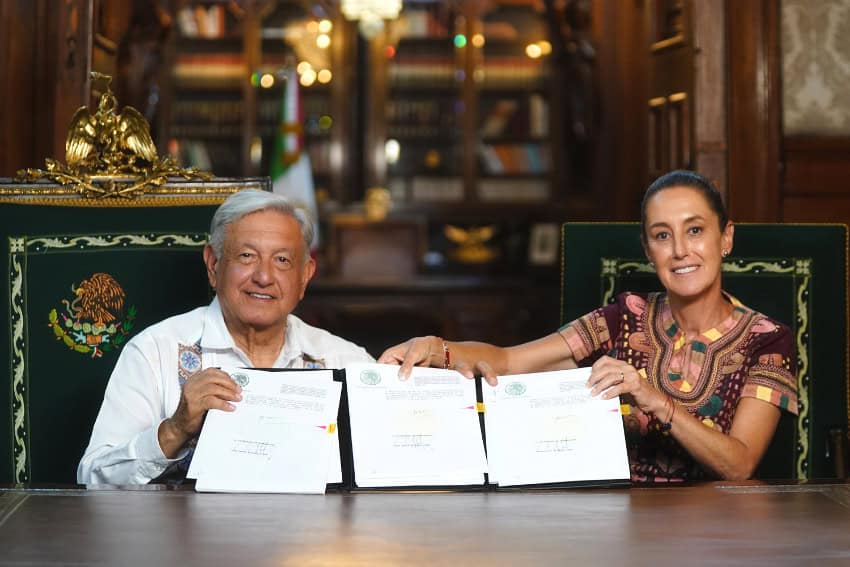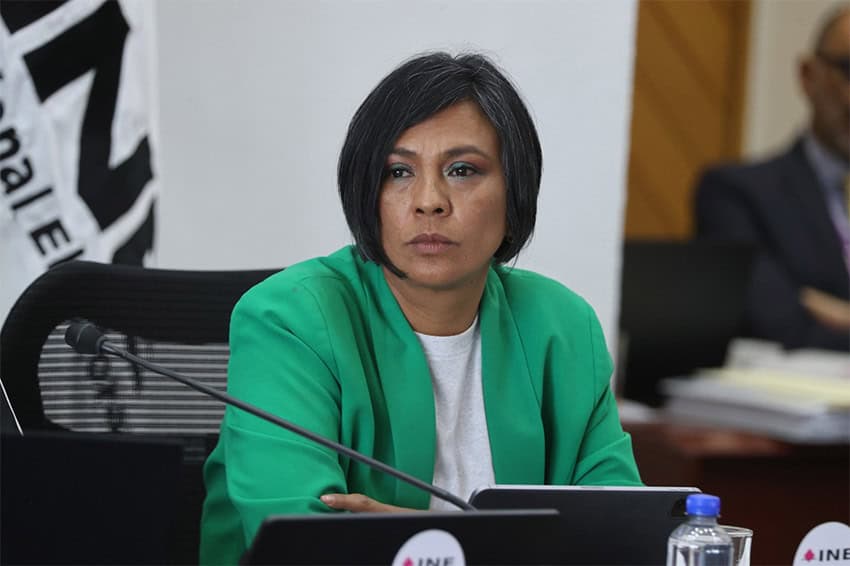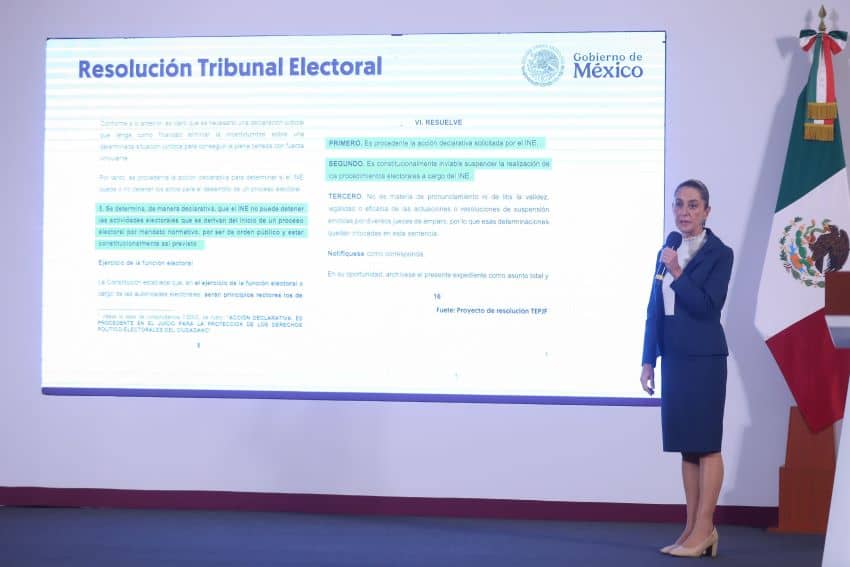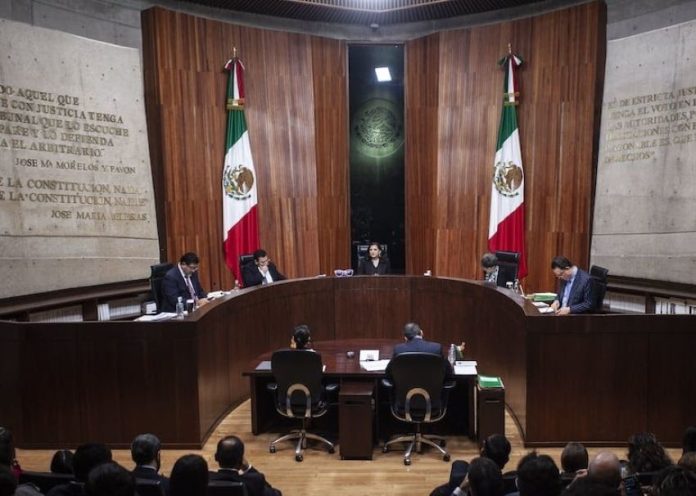The National Electoral Institute (INE) is moving ahead with the organization of Mexico’s first-ever judicial elections after the Federal Electoral Tribunal (TEPJF) ruled that suspending said organization is “constitutionally infeasible.”
Judges issued some 140 injunctions ordering the INE to suspend activities related to the organization of the June 1, 2025 judicial elections, at which citizens will elect 881 judges, including Supreme Court justices.

As a result of the promulgation of the federal government’s recently-approved judicial reform, all Mexican judges will be elected by popular vote starting next year. A second round of judicial elections is scheduled to take place in 2027.
The TEPJF said in a statement on Wednesday that it had determined that it is “constitutionally infeasible” to suspend activities related to the 2025 judicial elections, but it did not make any rulings against individual court orders.
“In a public on-site session, the Upper Chamber [of the TEPJF] …. determined that the INE cannot stop electoral activities derived from the commencement of an electoral process,” the TEPJF said, noting that the conducting of judicial elections is now a constitutional requirement.
Ruling provides clarity on judicial elections
The TEPJF ruling via a 3-2 decision came in response to a request from the INE for a pronouncement on whether it was obliged to cease activities related to the upcoming elections.
The electoral authority decided on Oct. 15 to suspend the organization of the judicial elections in light of the approximately 140 suspension orders issued by judges, who warned that INE officials who defied their injunctions were subject to punishments including fines and jail time.
The INE said in a statement on Wednesday that it will “comply” with the TEPJF’s ruling — i.e. resume the organization of next year’s judicial elections.
“This ruling provides clarity and certainty so that the INE can carry out its state function of organizing elections and guaranteeing the political-electoral rights of Mexicans,” the authority said.
INE Councilor Norma Irene de la Cruz told the newspaper El Heraldo de México that “we are now resuming the activities that we had suspended.”

Meanwhile, the executive, legislative and judicial branches of government are working on the processes that will determine who is eligible to stand for election as a judge in next year’s elections.
The news website Animal Político reported that “some preliminary estimates” indicate that the staging of the first judicial elections will cost at least 8 billion pesos (US $402.8 million), a figure more or less on par with the outlay on the elections held in June.
The judicial reform provision allowing judges to be elected from candidates put forward by the president, the Congress and the judiciary itself is highly contentious.
Critics of the reform argue that choosing judges by popular vote will erode the independence of Mexico’s courts and remove a vital check on government power given the likelihood of the election of many judges sympathetic to the ruling Morena party’s agenda.
President Claudia Sheinbaum rejects that argument and contends that judges need to be elected by “the people” to rid Mexico’s justice system of corruption, nepotism and other ills.
A federal judge last week ordered the removal from the Official Gazette of the Federation of a decree that promulgated the judicial reform on the basis that it was published in defiance of a court order against publication.

Sheinbaum — who was not yet president when the decree was published — has said that she won’t comply with the order of the judge, Nancy Juárez Salas, arguing that she doesn’t have the authority to issue a ruling against a constitutional reform that has been approved by Mexico’s Congress and ratified by a majority of state legislatures.
Ruling party seeks to protect constitutional reforms with another constitutional reform
In light of Juárez’s ruling against the promulgation of the judicial reform, Morena put forward a constitutional bill that would prevent legal challenges against constitutional reforms that have already been approved by Congress and ratified by state legislatures.
The so-called “constitutional supremacy” initiative was approved in a joint sitting of the Constitutional Points and Legislative Studies commissions of the Senate on Wednesday and could be considered by the full Senate as soon as Thursday night.
It seeks to change two articles of the constitution to ensure that constitutional reforms cannot be challenged or suspended.
In the Senate, Morena and its allies, the Labor Party and the Green Party, are one vote short of the two-thirds majority required to make constitutional changes on their own, but in recent weeks they managed to find an additional vote to approve several reform proposals initially put forward by former president Andrés Manuel López Obrador, including the judicial reform proposal and a bill that sought to place the National Guard under military control.
As with all constitutional reform proposals, the “constitutional supremacy” bill must be approved by two-thirds of both houses of Congress and ratified by a majority of state legislatures before the president can sign it into law.
With reports from Reforma, El Economista, Infobae, Animal Político and El Universal
